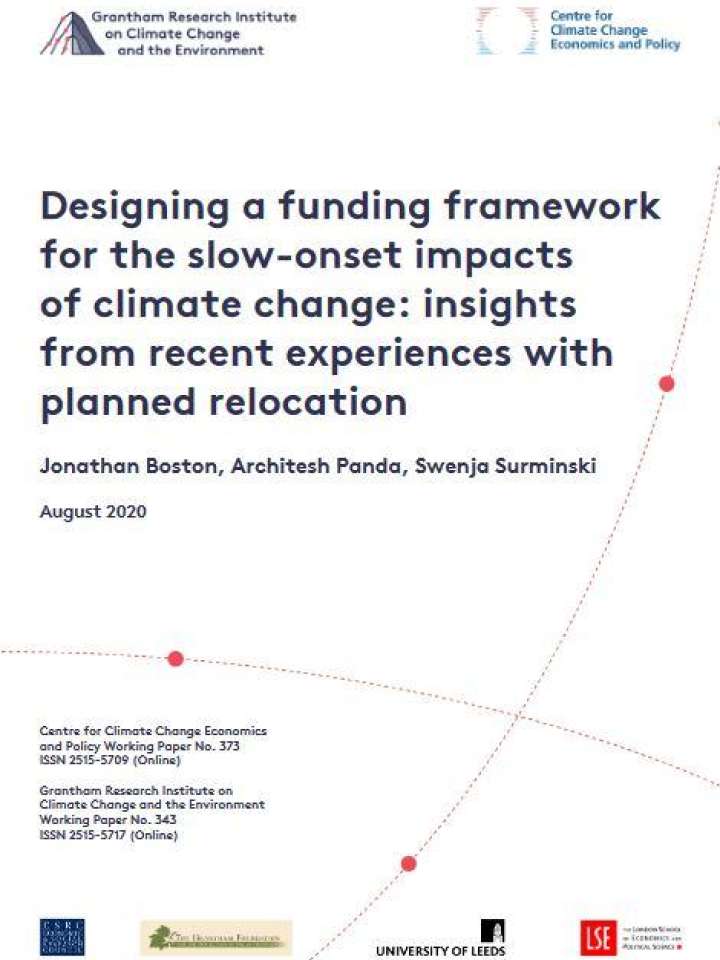Designing a funding framework for the slow-onset impacts of climate change: insights from recent experiences with planned relocation
This paper investigates recent approaches to the planned relocation of communities as one possible response to climate change impacts. The authors find that funding for this pre-emptive response strategy is inadequate and consider principles to inform the design of a fair and effective funding system for planned relocation.
The authors propose five high-level principles to guide future policy developments:
- Minimising long-term societal costs;
- Ensuring intergenerational and intra-generational equity;
- Enabling those directly affected to get on with their lives with minimal disruption and uncertainty;
- Integrating the funding of planned relocations with national strategies for sustainable development and societal resilience;
- Ensuring a high degree of transparency and accountability for the allocation of public funds.
They conclude that while some of the costs associated with planned relocation can and should be met from private sources, other costs will almost certainly require public funding; and that concerted efforts at all levels of governance – international, national and sub-national – are needed to develop cost-effective, equitable and politically sustainable funding solutions.
Explore further
